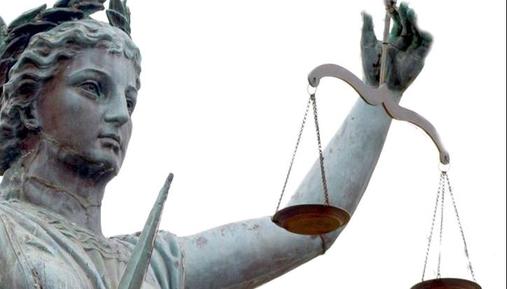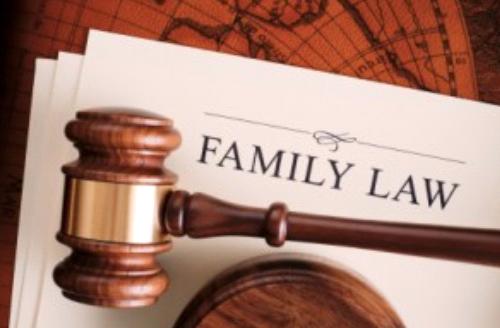How to Choose an Attorney
 How to Choose an Attorney
How to Choose an Attorney
Many people who find themselves in a legal bind may not be sure of the steps necessary to choose a good lawyer for their defense. Just like any other product or service, choosing a good attorney near you includes making the most informed decision regarding the service provider. This includes carefully researching the law firm, meeting the lawyer face-to-face and then evaluating the meeting to determine whether or not the lawyer and the client are a good fit for one another. This can be a daunting process, but the good news is this process does not have to be difficult. The following tips will explain how to choose a lawyer to meet your needs.
Finding the Right Lawyer
A good lawyer is someone who is credentialed and knowledgeable in the area of law the client needs assistance with. The lawyer should be well versed in the specific practice area required by the client. Some lawyers specialize in employment law, family law, ethics law or white collar criminal law, so choosing a lawyer with the right specialization is important for the best outcome. Clients should first conduct independent research regarding the lawyer to determine if they are the best lawyer for the case and if they specialize in the area of law required. Independent research can include internet searches or even asking friends and family for personal recommendations. Personal recommendations are excellent ways to assess personal opinions regarding what it is like to work with the lawyer. Reviewing ratings and reviews that have been posted online is another great way to determine how a lawyer works. Pay close attention to both positive and negative ratings. The positive ratings will clarify what the lawyer did to go above and beyond what was necessary for the client whereas the negative reviews may be clear indicators for undesirable behaviors. Overall, the best lawyer will have an excellent reputation with outstanding recognition within the community.
Initial Consultation
After conducting research and narrowing down a list of 3-5 lawyers, call each of them directly and request an initial consultation. During the consultation, the lawyer will describe their process, discuss how they work and will also answer any lingering questions the client may have. During this meeting the lawyer will demonstrate their expertise and will also address concerns the client has regarding the legal process.
Also during the meeting, it will be important to ask some very important questions. Here are a few qualifying questions to help the client get the most out of the meeting:
Finding the Right Lawyer
A good lawyer is someone who is credentialed and knowledgeable in the area of law the client needs assistance with. The lawyer should be well versed in the specific practice area required by the client. Some lawyers specialize in employment law, family law, ethics law or white collar criminal law, so choosing a lawyer with the right specialization is important for the best outcome. Clients should first conduct independent research regarding the lawyer to determine if they are the best lawyer for the case and if they specialize in the area of law required. Independent research can include internet searches or even asking friends and family for personal recommendations. Personal recommendations are excellent ways to assess personal opinions regarding what it is like to work with the lawyer. Reviewing ratings and reviews that have been posted online is another great way to determine how a lawyer works. Pay close attention to both positive and negative ratings. The positive ratings will clarify what the lawyer did to go above and beyond what was necessary for the client whereas the negative reviews may be clear indicators for undesirable behaviors. Overall, the best lawyer will have an excellent reputation with outstanding recognition within the community.
Initial Consultation
After conducting research and narrowing down a list of 3-5 lawyers, call each of them directly and request an initial consultation. During the consultation, the lawyer will describe their process, discuss how they work and will also answer any lingering questions the client may have. During this meeting the lawyer will demonstrate their expertise and will also address concerns the client has regarding the legal process.
Also during the meeting, it will be important to ask some very important questions. Here are a few qualifying questions to help the client get the most out of the meeting:
- How long has the lawyer been in practice?
- Does the lawyer have any professional memberships or certifications that make them qualified for the job?
- How much experience does the lawyer have with this type of legal matter?
- How many similar cases has the lawyer won?
- Can the lawyer provide references from other clients?
- What is the process for updating the client on developments within the case?
- Who else will be working on the case? Will there be paralegals, junior legal staff or others who will work on certain parts of the case?
 Choose an Attorney
Choose an Attorney
Overall, the client should get the sense that the lawyer is taking their case seriously and has their best interests at heart. A good lawyer will hold the information given to them in confidence so they can build the strongest case in support of the client’s innocence. These are indicators of a trustworthy and honest lawyer. The lawyer should also be an excellent communicator and should be responsive to the needs of the client. This means that even after the lawyer has been hired he or she should be available to answer any on-going questions the client has.
Understanding Costs & Fees
During the consultation, the lawyer should transparently explain their pricing structure and any additional fees associated with their legal service. Having a full understanding of the monetary obligations is an important aspect of working with an attorney. The client should understand the billing schedule and should have full confidence that there are no hidden fees associated with using the legal service.
Final Thoughts
Choosing the best lawyer can be made much easier by following the aforementioned tips. It is important to find the most qualified lawyer to obtain the most favorable outcomes. This attests to their level of professionalism and to their commitment to the long-term objective of client satisfaction. Also, remember to rely on gut instincts when choosing an attorney. The client must feel the lawyer is working in their favor and a good lawyer will be able to instill faith in the client regarding their capabilities. For additional questions, on how to choose a lawyer contact a legal professional today who can assist with choosing the most qualified lawyer for the legal matter at hand. Are you a small business looking for a business attorney near you? Check our NJ listing.
Understanding Costs & Fees
During the consultation, the lawyer should transparently explain their pricing structure and any additional fees associated with their legal service. Having a full understanding of the monetary obligations is an important aspect of working with an attorney. The client should understand the billing schedule and should have full confidence that there are no hidden fees associated with using the legal service.
Final Thoughts
Choosing the best lawyer can be made much easier by following the aforementioned tips. It is important to find the most qualified lawyer to obtain the most favorable outcomes. This attests to their level of professionalism and to their commitment to the long-term objective of client satisfaction. Also, remember to rely on gut instincts when choosing an attorney. The client must feel the lawyer is working in their favor and a good lawyer will be able to instill faith in the client regarding their capabilities. For additional questions, on how to choose a lawyer contact a legal professional today who can assist with choosing the most qualified lawyer for the legal matter at hand. Are you a small business looking for a business attorney near you? Check our NJ listing.
